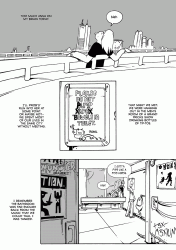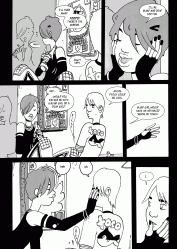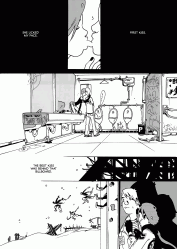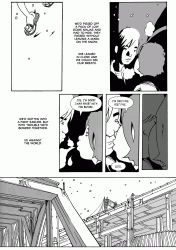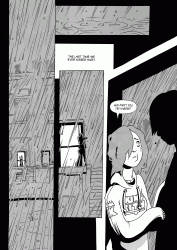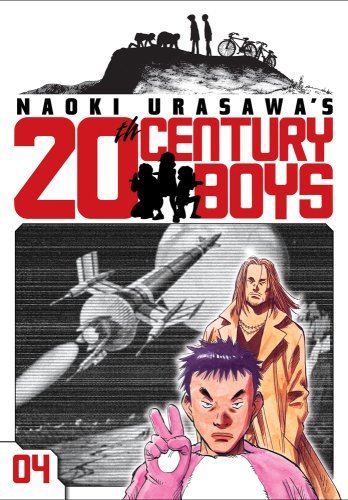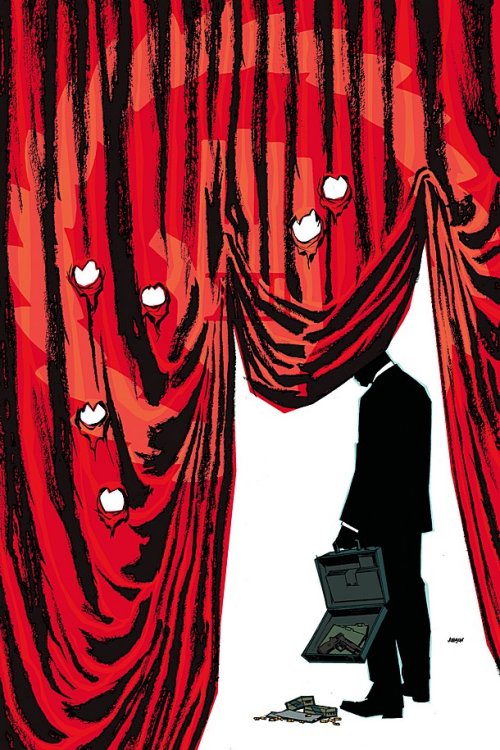Marian Churchland is the real deal.
I hadn’t heard of her until Sean Witzke started talking her up and I began following Brandon Graham’s livejournal. I haven’t read anything else by Churchland, though she’s done some Conan and Elephantmen work this year.
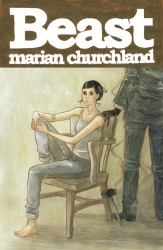 Her original graphic novel “Beast,” which hits comic shops on September 23rd, is an amazing introduction to the woman and her work. It’s the tale of Colette, a young sculptor, who ends up being hired to sculpt a piece of flawless white marble for a client. In return, she’ll get enough money to pay her rent for a year, if not more. The issue is that she has to live in the house with the block until she’s done, and her client is something other than human.
Her original graphic novel “Beast,” which hits comic shops on September 23rd, is an amazing introduction to the woman and her work. It’s the tale of Colette, a young sculptor, who ends up being hired to sculpt a piece of flawless white marble for a client. In return, she’ll get enough money to pay her rent for a year, if not more. The issue is that she has to live in the house with the block until she’s done, and her client is something other than human.
As with any good story, that is just where it begins. Beast veers off into something else entirely very quickly. Within the first dozen pages is a very good horror turn, one of the best in recent memory. A slasher doesn’t jump out of the bushes while Colette runs away in her underwear, or anything even remotely as obvious, but the book takes a hard left where I was expecting something else.
It instantly made me re-assess what I thought the book was about. I wondered if the book was about the Apocalypse, and that the titular Beast was the Beast of Revelation. If she finished the sculpture, was the end of the world going to begin? Was she going to fight back somehow?
The idea floated around in my brain while Churchland slowly revealed the secrets of the marble and Beast and eventually debunked what was, in hindsight, a cockamamie theory. That vague sense of ambiguity about the story enhances the work, though, turning it into a tale that’s occasionally melancholy, always compelling, and, as a first work, simply amazing. It isn’t a horror comic, it isn’t a romance comic, it isn’t a weepy depresso comic. It’s just the kind of comic you should read. You don’t get to prejudge it and put it in a little box.
Churchland wrote and drew the story, and her art is full of those useless details that count for so much. The tag sticking up from Colette’s boxer shorts, the way her vest rides up a little, and her messy hair bun– all a lot of nothing, but very important in terms of building atmosphere and character. The art has a bit of Geof Darrow about it. Couches aren’t just the platonic ideal of a couch. They’re ripped, rumpled, and torn. Clothes shift and bunch, and faces turn from sleepily tired to worried and don’t need words to express it.
When the art goes from the soft tan tone and clean line work to the gritty and messy pencilwork that is the first appearance of Beast, you feel uncomfortable. When Colette wakes up, the world is different and she’s a little off. The art, too, is different- a different shade of color. That shade soon gives way to grey, as Colette finally meets Beast, and when she shivers and bursts into tears while an uncaring woman stands behind her, well– it works. It works really, really, really well.




The details are what stuck with me the most, I think. The dried smudge of leftover tears on Colette’s face, the way Beast is defined (but not really), the disarray of the house, and the way the marble looks. All of it looks great. The colors change fairly often, but it always works within the story. It happens when a new day appears, or Colette’s perspective changes, or Beast reveals something new.
Beast is a mature and wonderfully paced work. It’s melancholy, wistful, maybe a little magical (for lack of a better term), and the character interaction is what makes it work. It can be a little rough around the edges, but never in a way that’s distracting. In fact, I never felt like the story was dragging, and I breezed through all 140-ish pages in one sitting. There are a few things I don’t quite buy, but that’s pretty much water under the bridge. I’m genuinely impressed, and I can’t wait to see what she’s doing next. If she can hit us with one of these a year, I’d be happy. Really, I think I’d be happy to read whatever she wants to work on.

